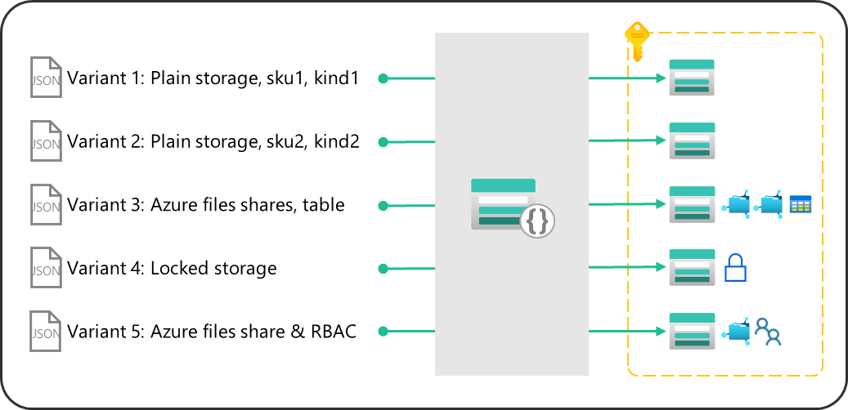-
Notifications
You must be signed in to change notification settings - Fork 461
The context CARML library
This page provides an overview of the CARML library. For an in-depth look, please refer to the dedicated wiki section, "The library".
'Infrastructure as Code (IaC)' describes a declarative approach towards resource deployment & management. Using configuration & template files that represent the deployed infrastructure has several benefits:
- Local representation: Your deployed infrastructure is mapped to a local representation as code in your repository.
- Version control: The applied configuration is version controlled and hence enables roll-backs & analysis.
- Repeatability: You can deploy your infrastructure in a repeatable fashion, hence minimizing the chance of manual errors.
- Reusability: You can reuse your automation to deploy the same infrastructure to different environments. For example, leveraging a multi-stage deployment from a sandbox environment, via integration to production using the same code.
In the context of Bicep or ARM/JSON templates, we usually leverage a combination of flexible templates that are deployed using multiple module test files mapped to different scenarios.
In the context of CARML, we define a module as a reusable, template-based building block for Infrastructure as Code deployments of Azure resources.
Each module is generalized for maximum flexibility. Each template should be able to cover as many resource-specific scenarios as possible and not restrict the user by making assumptions on the user's behalf. Eventually, the injected parameters should decide what the template deploys.
Furthermore, each module comes with default values for its optional parameters, a detailed documentation for its usage and one or multiple module test files to prove its correctness.
A CARML module should comply with the following characteristics:
-
Atomic unit: Each module is tied to a specific resource type or strongly correlated services.
For example, a virtual machine module also deploys related OS disks and network interfaces.
-
Reusable: Several modules can be combined together to create & orchestrate more complex architectures (i.e., multi-module solutions) like workloads/applications or single services.
For example, the resource group, the network security group and the virtual network modules can be combined to create a resource group hosting a virtual network with multiple subnets associated to specific NSGs.
-
Multi-purpose: Each module aims to cover most of the main resource's capabilities, without the need to maintain multiple module instances for different use cases. Instead, a generalized module can be consumed through module test files.
For example, the same virtual machine module can deploy a Windows OS VM or a Linux-based VM depending on input parameters.
-
Integrates child resources: Each module can deploy one instance of a resource and optionally n instances of its child resources.
For example, the Key Vault module can deploy one Key Vault and optionally n Key Vault access policies.
-
Integrates extension resources: Extension resources are integrated with resource modules to support additional capabilities, such as diagnostic settings, role assignments, private endpoints, locks and managed identities.
For example, an automation account can optionally deploy private endpoints and/or diagnostic settings to support monitoring.
CARML can be considered "opinionated" as its code strictly follows a set of design principles, but at the same time it's "not opinionated" as it's not limiting the user of the modules (i.e., Solution Developers) to a given configuration, naming or other conventions. All modules come with a set of secure default parameters, but these can be overridden at deployment time, as opposed to hard coded variables.
This section illustrates the previously described module features applied to the storage account module.
Leveraging five different module test files, the same storage account module is able to deploy five different storage account configurations.

- Variant 1: A plain storage account, with no child or extension resources applied, with a defined storage account sku and kind.
- Variant 2: Another plain storage account with no child or extension resources, with a different sku and kind.
- Variant 3: A storage account hosting two file shares and one blob container.
- Variant 4: A storage account with a specific lock applied.
- Variant 5: A storage account hosting a file share with a specific role assignment applied on the file share level.